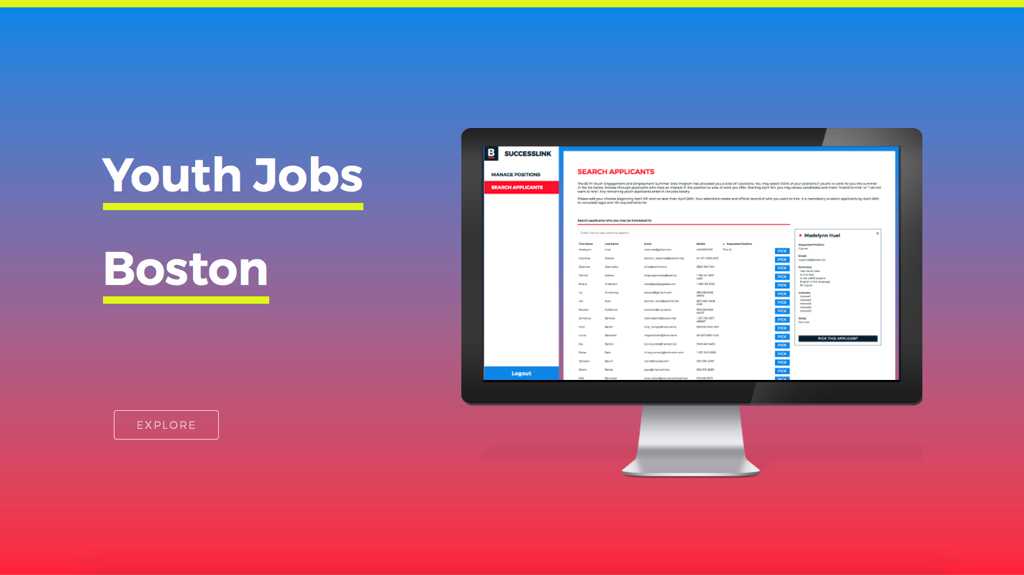How a group of government technologists designed a more accessible summer employment system for Boston youth

This post was originally published by MAPC Digital Services Manager Alicia Rouault on Medium. Read the original article here.
In 2015, our team of government data and technology experts from MAPC and the City of Boston formed the Boston branch of the Civic Tech Data Collaborative (CTDC) to tackle the design of a more accessible youth employment system. After two years of cross-sector collaboration, we released a final open source Youth Jobs Platform in November of 2017. Ongoing, the City of Boston will update and use this platform for the 2018 job season and beyond.
Why a summer job matters, in the long run
Summer jobs provide immediate benefits to youth: they help develop an understanding of financial management, offer real-world work experience, expose youth to positive adult role models, can help build a resumé or create networks for future employment opportunities. Researchers have also found a positive correlation between having a summer job and achieving much longer term life outcomes that make a huge difference in life-long success: reduced incarceration rates and higher educational achievement. In Boston, Northeastern Labor Economist, Alicia Sasser-Modestino, is conducting a multi-year study to measure such benefits:
“In the long-run, having a summer job can make crime a relatively less attractive option by providing youth with the tools and experience needed to navigate the job market on their own and raising their aspirations for future career options and/or postsecondary education.”
Recently summer employment has been declining for teens (ages 16–19) across the country, which is raising concerns about fewer future pathways to employment for Black and Latino youth living in places with few existing employment opportunities. Youth in Boston have organized around increasing access to the jobs that are available. Last February, over 900 youth convened a rally to increase job opportunities and decrease juvenile incarceration, organized by the Youth Jobs Coalition, an alliance of 40 youth community groups from across the state.
In response to these issues, municipalities across the United States have refocused energy around Summer Youth Employment Programs, which provide subsidized jobs to help prepare young people for the workforce and engage local institutions in the hiring process.
How did Boston Do It?Read Alicia’s blog post on Youth-Centered Design, creating a platform with an algorithmic job match, and improving the application experience. |
